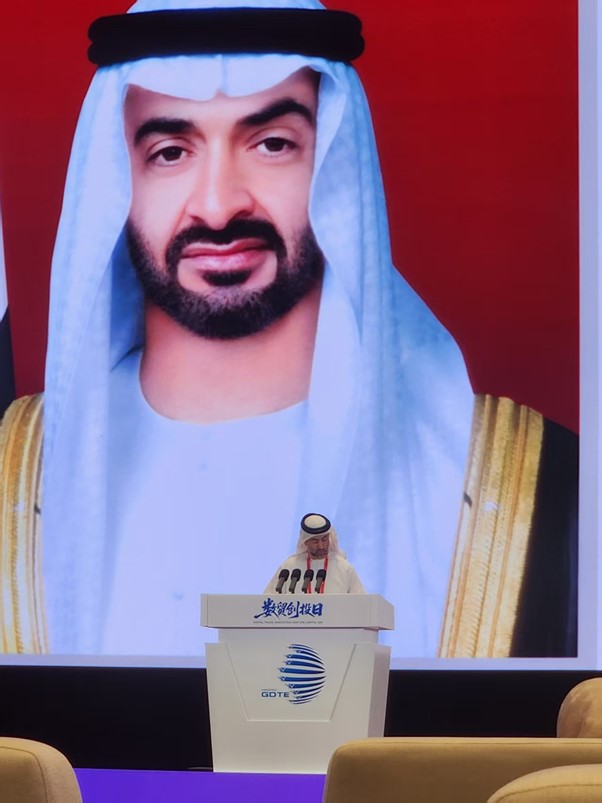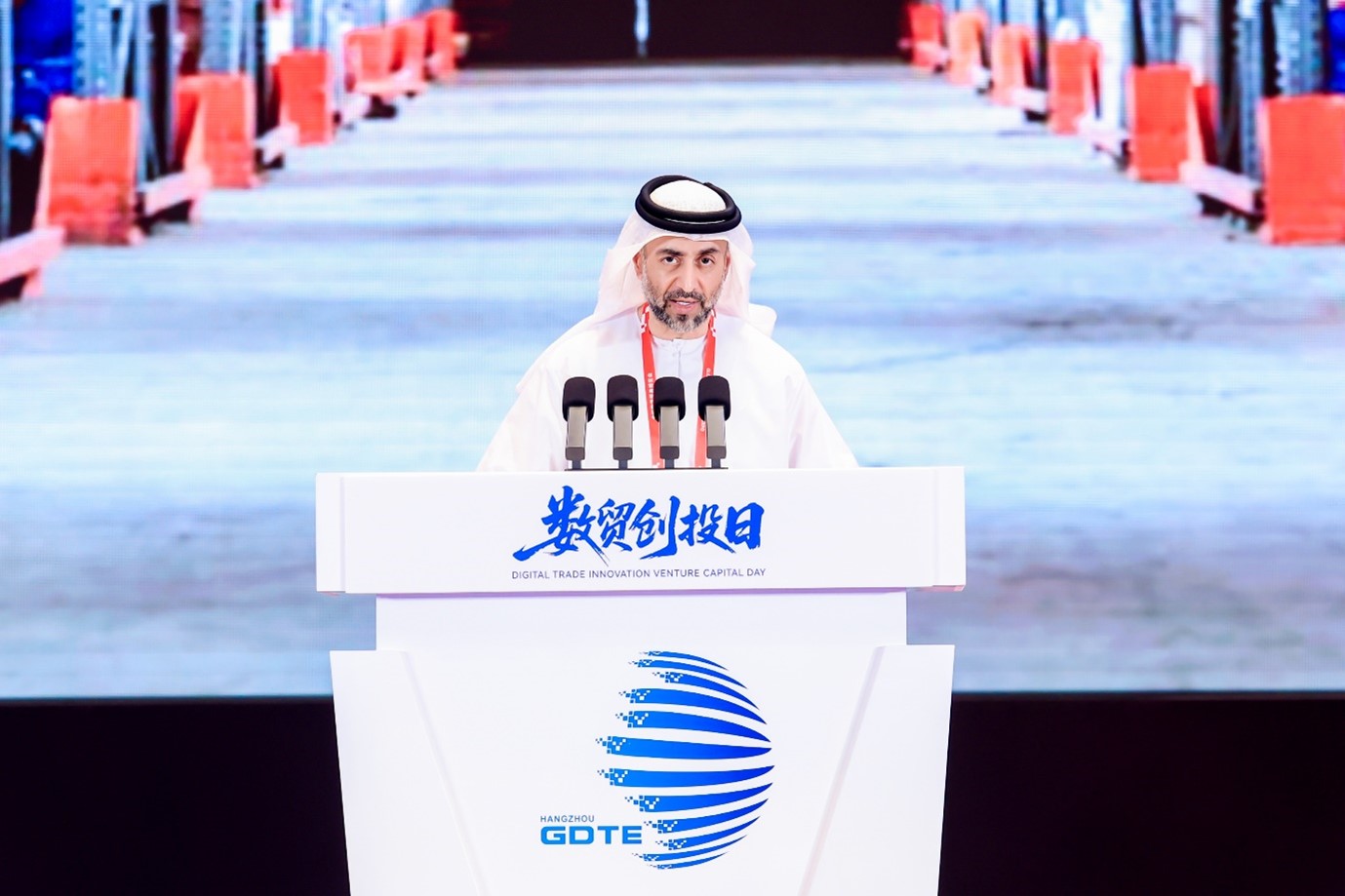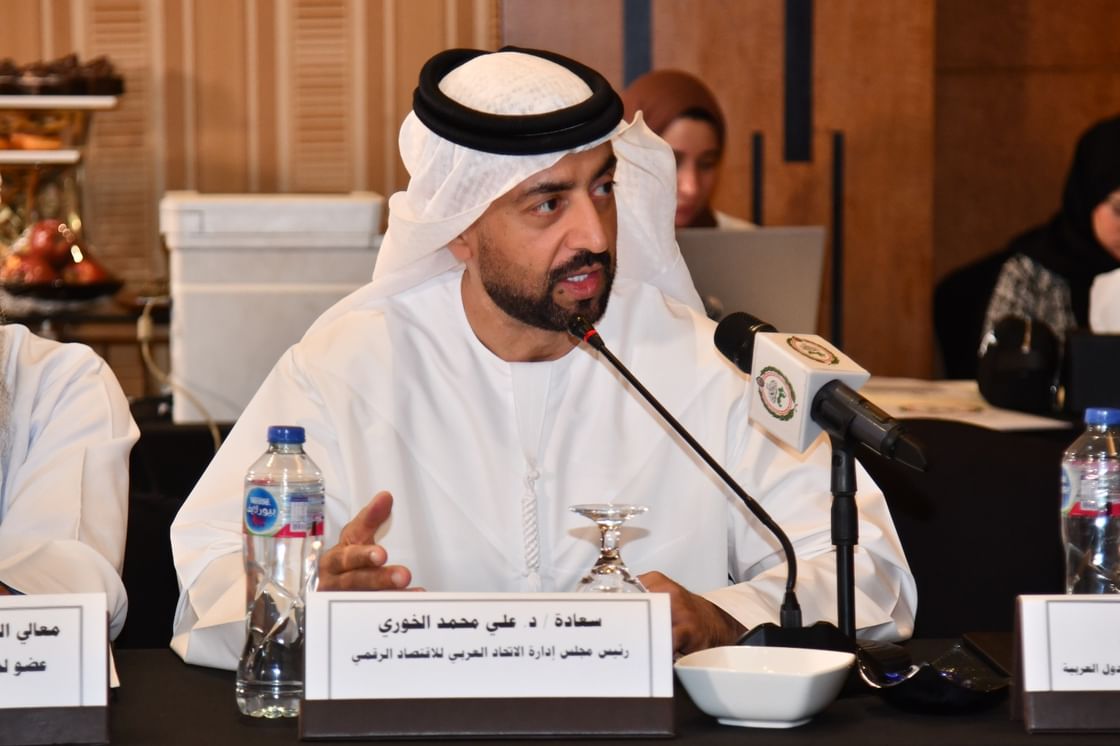Hangzhou – China
The Arab Federation for Digital Economy participated in the fourth Global Digital Trade Expo (GDTE 2025), hosted by the Chinese city of Hangzhou from September 25 to 29. The exhibition featured a series of major events and specialized conferences, including a conference on digital free zones with the participation of a select group of officials, experts, and decision-makers from around the world, reflecting the Federation’s growing role in international forums concerned with developing the digital economy and trade.
In the keynote speech delivered by His Excellency Dr. Ali Mohammed Al Khouri, Advisor to the Council of Arab Economic Unity and Chairman of the Arab Federation for Digital Economy, he emphasized that the digital economy has become a major driver of global growth, representing approximately 15% of global GDP, or more than $16 trillion, while cross-border digital trade is expected to reach approximately $5.6 trillion by 2030.
Al Khouri explained that digital free zones represent one of the most innovative solutions for facilitating cross-border trade, providing flexible and attractive environments that enable startups and entrepreneurs to engage in the global economy through modern and more streamlined legislative and regulatory frameworks, particularly with regard to taxes, intellectual property rights protection, and data management. He pointed out that these zones can also contribute to achieving sustainable development by narrowing trade gaps and reducing the carbon footprint, while enabling small and medium-sized enterprises to enter international markets.

He pointed out that the Arab region, with its market of nearly half a billion people and an internet penetration rate exceeding 70%, reaching more than 95% in the Gulf Cooperation Council countries, is well-positioned to become a pivotal hub for global digital trade. He added that investments in data centers in the UAE, Saudi Arabia, and Egypt will exceed $13 billion by 2026, while artificial intelligence technologies are expected to contribute $320 billion to the Arab GDP by 2030.
Al-Khouri reviewed the Federation’s initiatives, most notably the “Arab Food Platform,” launched in 2023 as the first regional digital market for trade in food and agricultural technologies. Accredited by the Economic and Social Council of the League of Arab States, it serves as a platform connecting exporters, importers, and service providers within a secure and transparent digital environment.
In concluding his remarks, Al Khouri emphasized that building a digital economy does not rely solely on infrastructure, but rather requires regulatory cooperation, a secure infrastructure, and qualified human capital. He noted that these three pillars will enable digital free zones to transform into new economic engines where innovation meets sustainability and inclusiveness. He also called for expanding international cooperation, particularly with developing economies like China, to build digital systems that contribute to sustainable economic prosperity.











